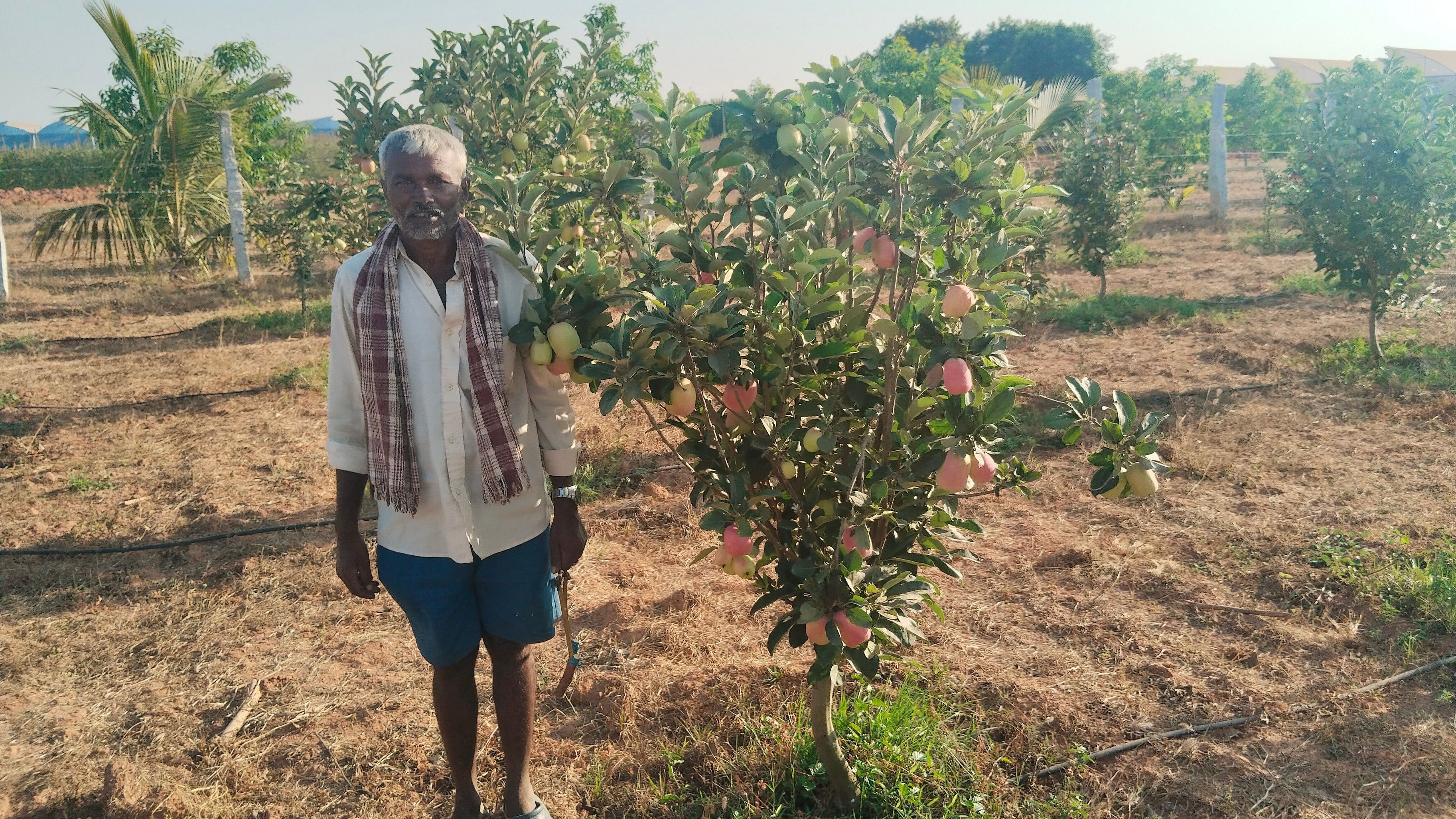
Basavaraju with the apple crop on his farm in Hosakote taluk.
Credit: DH photo
Bengaluru: Around 42 kms from Bengaluru, in Hoskote taluk's Siddenahalli village, Basavaraj Valmiki looks content. With apples dangling from the trees on his farm, he has achieved his dream.
"There was no fear of failure in my mind," he said, talking of his unusual fixation to grow Kashmiri apples in his village, hardly a suitable location for the fruit. But then Basavaraj seems to relish a good challenge.
As on Friday (March 29), Basavaraj has sold nearly 800 kg of apples (at Rs 120/kg) harvested from 442 plants. There are another 400-500 kg of apples ready to be harvested in the next couple of weeks. He estimates that each tree is producing five kg of apples.
It all began around two years ago. Basavaraj, who cultivated vegetables, watched YouTube videos of Kashmiri apples and it seeded a thought in him: Why not grow the fruit in his village?
Basavaraj dived into YouTube to understand everything there is about cultivating apples. He reached out to farmers who had grown apples on an experimental basis in Tumakuru and eventually contacted experts from Kashmir to know the basics.
As his network grew, he got contacts of a farmer in Vijayapura, where he bought apple saplings.
Basavaraj claims that lab tests have shown that his produce is of good quality; the icing on the cake being consumers appreciating the taste.
“I wanted to cultivate Kashmiri apples in my field and I did everything, from learning methods of planting saplings, selecting saplings, feeding water to plants, prevention of pest attacks and others to make sure that I get a good yield,” said Basavaraj.
After YouTube, he interacted with experts from Kashmir who taught him other nuances of cultivation — instead of “flooding” cultivation, he should opt for drip irrigation; and water the saplings for one hour every three days.
With news going around, around 100 farmers have visited his farm so far, showing interest in taking up apple cultivation.
But experts warn that the success of one farmer should not become a model for others.
“Apple is not a traditional crop of this region. The commercial success of this fruit cultivation is not assured. We will not recommend the cultivation of apples in our region,” said G Karunakaran, Principal Scientists and Head of Indian Institute of Horticultural Research (Experimental), Tumakuru.
He said Karnataka has been experimenting with the cultivation of apples for the last 20 years with limited success. “Only a tropical variety of apple can be cultivated here. But even that variety is at the risk of pest attack and other diseases. With the increase in production cost, apple cultivation is not viable in the long run,” he said.
That warning is borne out by the story of Narayanaswamy, a farmer from Maralakunte village in Chikkaballapur district. Narayanaswamy had taken up apple cultivation four years ago but is no longer doing it.
“I am no longer cultivating apples in my farms. They are not economically and commercially viable,” he said, adding his farm was infested with pests that resulted in a sharp decline in production.
Experts suggest experimenting more with varieties before taking up large-scale cultivation.